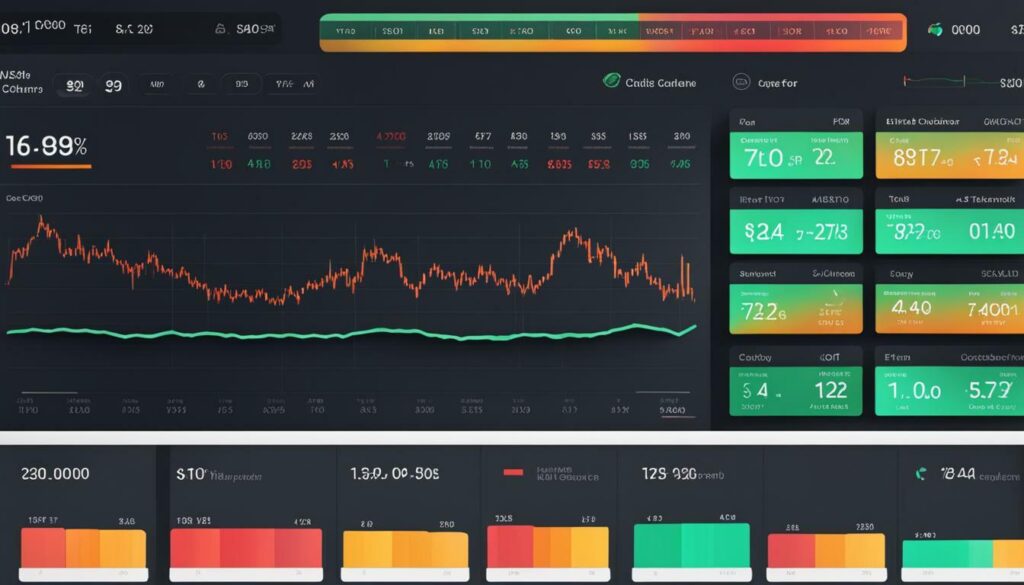Understanding Credit Reporting in the Digital Age

Credit reporting in the digital age has undergone significant transformations due to technological advancements and the widespread use of personal data for decision-making and marketing purposes. As our lives become increasingly intertwined with the digital realm, it is crucial to comprehend the intricacies of credit reporting in this new era.
Today, credit scores and credit histories play a pivotal role in various aspects of our financial lives. They are instrumental in determining creditworthiness, influencing loan approvals, interest rates, and even employment opportunities. Behind the scenes, credit bureaus act as the gatekeepers, providing objective views of our credit histories to lenders, employers, and other entities.
The digital age has opened up new possibilities for credit reporting. Alternative data sources, such as telecom, utility, and rental data, are being integrated to provide a more comprehensive picture of consumers’ creditworthiness. Sophisticated analytics and fintech companies are reshaping the future of credit bureaus, making credit reporting more efficient, accurate, and accessible.
Key Takeaways:
- Credit reporting has transformed in the digital age, influenced by technology and the use of personal data for decision-making and marketing purposes.
- Credit bureaus play a crucial role in providing objective views of consumer credit histories.
- Alternative data sources and fintechs are shaping the future of credit reporting and expanding access to credit.
- Regulatory guidance is needed to ensure the responsible use of personal data and the establishment of national data security standards.
- Contextual underwriting, taking into account various factors, can provide more accurate assessments of borrowers and expand access to credit.
With the constant evolution of credit reporting in the digital age, staying informed and leveraging technology can enhance your financial well-being. In the following sections, we will delve deeper into the role of credit bureaus, the benefits of leveraging technology for credit monitoring, the impact of new data sources and analytical tools, regulatory considerations, and the potential of contextual underwriting to expand access to credit.
The Role of Credit Bureaus in the Digital Age
Credit bureaus play a vital role in the digital age by offering objective assessments of individual credit histories, making them integral to financial decisions and lending practices. With the explosion of personal data and its use for decision-making and marketing purposes, credit bureaus provide a standardized and reliable source of information for lenders and businesses to evaluate creditworthiness.
🚨 TUIC Errors + Low Credit Score?
CreditScoreIQ helps you build credit faster by reporting utility bills to all 3 bureaus—while you dispute errors.
Start Building Credit Today →These bureaus compile comprehensive credit histories that include information on an individual’s borrowing and repayment patterns, such as credit card usage, loans, mortgages, and other financial obligations. By analyzing this data, credit bureaus generate credit reports and scores, enabling lenders to assess the level of risk involved in extending credit to individuals or businesses.
Financial habits are a key factor in credit assessments, and credit bureaus play a pivotal role in evaluating and reporting these habits. They provide a snapshot of an individual’s credit history, including details about credit accounts, payment history, outstanding debts, and any defaults or late payments. This information helps lenders make informed decisions about extending credit and setting interest rates.
In today’s digital age, credit bureaus are adapting to innovative alternative data sources and sophisticated analytics. Fintech companies are emerging as players in the credit reporting space, leveraging new data sets such as telecom, utility, and rental data to improve credit assessments for individuals with limited credit histories. This shift enables a more inclusive approach to credit reporting, expanding access to credit for a wider range of borrowers.
As credit reporting becomes increasingly data-driven, it is crucial for policy makers to develop regulatory guidance to ensure the responsible and ethical use of personal data for credit decisions. Establishing national data security standards and promoting clarity and coordination among regulatory agencies are essential to safeguarding the privacy and security of credit bureau data in the digital age.
Table: Role of Credit Bureaus in Credit Reporting
| Roles | Description |
|---|---|
| Objective Assessments | Credit bureaus provide unbiased evaluations of individuals’ credit histories, facilitating fair and consistent lending practices. |
| Financial Habits | Credit bureaus analyze financial habits, including payment history, credit utilization, and outstanding debts, to assess creditworthiness. |
| Alternative Data | With the rise of fintechs, credit bureaus are incorporating alternative data sources, such as telecom, utility, and rental data, to provide a more comprehensive view of an individual’s creditworthiness. |
| Regulatory Considerations | Policy makers need to provide regulatory guidance and establish data security standards to ensure the responsible use of personal data for credit decisions. |
Leveraging Technology for Enhanced Credit Monitoring
Technology has revolutionized credit monitoring, providing individuals with convenient access to their credit reports, safeguarding against identity theft, and streamlining the process of managing credit information online. With online credit reporting platforms, you can now easily keep tabs on your credit score, review your credit history, and track any changes in real-time.
One of the significant benefits of online credit reporting is the ability to detect and protect against identity theft. By regularly monitoring your credit report, you can quickly identify any suspicious activities or unauthorized accounts opened in your name. Early detection allows you to take immediate action to prevent further financial harm.
Furthermore, managing your credit information online simplifies the process of reviewing and updating your personal and financial details. Instead of relying on traditional mail or phone calls, you can conveniently log in to your online credit reporting account and make the necessary changes with just a few clicks. This ensures that your credit information remains accurate and up-to-date, which can have a positive impact on your credit score.
As technology continues to advance, credit monitoring platforms are evolving to provide more robust features and enhanced security measures. For instance, some platforms offer proactive credit monitoring alerts, notifying you of any significant changes to your credit report or suspicious activities that may require your attention. These alerts empower you to take control of your financial well-being and make informed decisions to protect your creditworthiness.
| Benefits of Leveraging Technology for Credit Monitoring: |
|---|
| Convenient access to credit reports |
| Protection against identity theft |
| Efficient management of credit information |
| Real-time monitoring and proactive alerts |
By taking advantage of the technological advancements in credit monitoring, you can stay proactive in managing your credit and protect your financial well-being. Stay informed, utilize the tools available, and make the most of online credit reporting to ensure a secure and healthy credit profile.
Image:

Online credit reporting has evolved with the advent of fintech companies and the incorporation of previously untapped data sources, such as telecom, utility, and rental data, which can provide valuable insights for individuals with limited credit histories. These new data sources, when combined with sophisticated analytics, have the potential to revolutionize consumer underwriting and expand access to credit.
Fintech companies, with their innovative approaches to financial services, are leveraging technology to gather and analyze alternative data sources. By considering factors like telecom and utility data, which reflect regular payment behavior, creditworthiness can be assessed beyond traditional credit history. This opens up opportunities for individuals who may have limited or no credit history to access credit based on their demonstrated financial responsibility in other areas of their lives.
“By using telecom, utility, and rental data, lenders can gain a more comprehensive view of an individual’s financial habits and payment history.”
These new data sources also provide insights into an individual’s stability and reliability. For example, rental data can reflect payment patterns and the ability to meet financial obligations, while utility data can indicate responsible usage and consistent bill payments. This additional information allows lenders to make more informed and accurate credit decisions.
As the industry continues to evolve, it is essential for lenders, credit bureaus, and regulators to collaborate in developing regulatory guidance on the use of these alternative data sources. Implementation of national data security standards and clear regulations will help establish trust and protect consumer data in the digital age. Clarity and coordination among regulatory agencies are crucial to ensure the integrity and security of credit bureau data, safeguarding the interests of both lenders and borrowers.
Table: Key Benefits of Embracing New Data Sources and Analytical Tools
| Benefits | Description |
|---|---|
| Expanded Access to Credit | New data sources provide a more comprehensive view of an individual’s creditworthiness, enabling access to credit for those with limited credit histories. |
| Enhanced Accuracy in Credit Assessments | The inclusion of telecom, utility, and rental data allows for a more thorough evaluation of financial behavior and payment patterns, leading to more accurate credit assessments. |
| Improved Financial Inclusion | By considering alternative data sources, lenders can extend credit to underserved populations and promote financial inclusion. |
| Increased Efficiency in the Application Process | Utilizing diverse data sets and sophisticated analytics streamlines the credit application process, allowing for faster and more efficient credit decisions. |

In conclusion, the integration of previously untapped data sources and advanced analytical tools in online credit reporting has the potential to transform the credit industry. By leveraging fintech innovations and incorporating telecom, utility, and rental data, lenders can make more accurate credit assessments and expand access to credit for individuals with limited credit histories. However, it is crucial to establish regulatory guidance and national data security standards to ensure the integrity and security of consumer data in the digital age.
Regulatory Considerations for Credit Reporting in the Digital Age
In the digital age, it is imperative for policy makers to develop regulatory guidance on the use of personal data for credit decisions and establish national data security standards to protect consumers’ sensitive information. With the explosion of personal data and its widespread use for decision-making and marketing purposes, there is a pressing need to ensure that credit reporting practices are fair, transparent, and secure.
Regulatory agencies play a crucial role in safeguarding the interests of consumers by overseeing the operations of credit bureaus and enforcing compliance with privacy and data protection regulations. However, with the rapid advancements in technology and the emergence of alternative data sources, regulatory frameworks need to adapt and evolve to keep pace with the changing landscape of credit reporting.
One key area of focus for regulators is the establishment of clear guidelines on the collection, storage, and use of personal data for credit reporting purposes. This includes defining what types of data can be collected, how it should be safeguarded, and the permissible uses of the data. Additionally, regulatory guidance should address issues related to consent, data retention, and the right to access and dispute credit information.

Furthermore, to ensure the security of credit bureau data, policy makers must work towards establishing national data security standards. These standards should encompass robust data encryption, secure data storage and transmission, regular audits, and strict protocols for handling data breaches. By setting clear security guidelines, regulators can minimize the risk of data breaches and unauthorized access to credit information.
Overall, the evolution of credit reporting in the digital age presents both opportunities and challenges. While the use of new data sources and analytical tools can enhance credit assessments and expand access to credit, it is essential to strike a balance between innovation and consumer protection. By developing regulatory guidance and national data security standards, policy makers can ensure that credit reporting practices remain fair, transparent, and secure in today’s rapidly changing digital environment.
| Key Points |
|---|
| Regulatory guidance is needed on the use of personal data for credit decisions. |
| Establishing national data security standards is essential to protect consumers’ sensitive information. |
| Regulatory frameworks should adapt to advancements in technology and the use of alternative data sources. |
| Clear guidelines are necessary for the collection, storage, and use of personal data in credit reporting. |
| National data security standards should encompass encryption, secure storage, and strict protocols for data breaches. |
Expanding Access to Credit through Contextual Underwriting
Contextual underwriting offers a more accurate assessment of borrowers for different types of loans, considering factors such as purpose, magnitude, term, features, security, source, behavior, and hierarchy, paving the way for expanded access to credit by incorporating diverse data sets in consumer underwriting.
Traditional credit scoring models often rely heavily on credit history and financial indicators, which may exclude individuals with limited credit histories or unconventional financial situations. However, by incorporating alternative data sources such as bank account data and payment history for rent, utilities, and buy now, pay later services, lenders can gain a more comprehensive understanding of a borrower’s financial behavior and creditworthiness.
Incorporating diverse data sets into the underwriting process allows lenders to consider a broader range of factors when making credit decisions. For example, bank account data can provide insights into an individual’s income stability, while payment history for rent and utilities can demonstrate responsible financial behavior and a track record of meeting obligations.
By leveraging contextual underwriting and diverse data sets, lenders can evaluate borrowers based on a more comprehensive and nuanced view of their financial situation. This can lead to expanded access to credit for individuals who may have been previously overlooked by traditional credit scoring models, helping to bridge the gap and foster financial inclusivity.

| Data Set | Key Information |
|---|---|
| Bank Account Data | Insights into income stability and overall financial health. |
| Payment History | Demonstrates responsible financial behavior and ability to meet obligations. |
| Rental Data | Indicates consistent payment history and responsible tenancy. |
| Utility Data | Provides information on bill payment consistency and financial stability. |
| Buy Now, Pay Later Services | Shows responsible use of credit and adherence to payment schedules. |
Conclusion
Credit reporting in the digital age has undergone remarkable changes, driven by technology and the utilization of personal data, revolutionizing how individuals manage their credit and opening new possibilities for financial success. With the explosion of personal data and its use for decision-making and marketing purposes, credit bureaus play a crucial role in providing objective views of consumer credit histories.
Alternative data sources, sophisticated analytics, and fintech companies are shaping the future of credit bureaus, allowing them to tap into telecom, utility, and rental data to provide a more comprehensive picture of an individual’s creditworthiness. This is especially beneficial for those with limited credit histories, as it enables them to build a credit profile based on their payment behavior in various areas of their financial lives.
However, policy makers must also address the regulatory considerations surrounding the use of personal data for credit decisions. It is essential to develop clear guidance to ensure the responsible handling and protection of personal information, as well as the establishment of national data security standards. Clarity and coordination among regulatory agencies are necessary to safeguard the security and integrity of credit bureau data.
Furthermore, the concept of contextual underwriting holds promise in expanding access to credit. By considering various factors such as purpose, magnitude, term, features, security, source, behavior, and hierarchy in credit assessments, lenders can make more accurate judgments about borrowers for different types of loans. Diverse data sets, including bank account data and payment history for rent, utilities, and buy now, pay later services, can enhance consumer underwriting, leading to fairer and more inclusive access to credit.
As the digital age continues to evolve, credit reporting will continue to play a vital role in financial decision-making. Staying informed about credit management and leveraging technology for enhanced financial well-being are crucial steps individuals can take to navigate the ever-changing landscape of credit reporting and maximize their financial success.
FAQ
What is the role of credit bureaus in the digital age?
Credit bureaus provide objective views of consumer credit histories, making them crucial in modern economies.
How are alternative data sources and sophisticated analytics shaping the future of credit bureaus?
Alternative data sources and sophisticated analytics are shaping the future of credit bureaus by providing additional insights into consumer credit histories.
What are the benefits of leveraging technology for credit monitoring?
Leveraging technology for credit monitoring allows for real-time access to credit reports, protection against identity theft, and easy maintenance of accurate credit information online.
What are some new data sources being used in credit reporting?
New data sources in credit reporting include telecom, utility, and rental data, which can benefit consumers with limited credit histories.
What regulatory considerations are relevant to credit reporting in the digital age?
Regulatory considerations for credit reporting in the digital age include the need for guidance on the use of personal data for credit decisions and the establishment of national data security standards.
How can access to credit be expanded through contextual underwriting?
Access to credit can be expanded through contextual underwriting, which takes into account various factors such as bank account data, payment history, and diverse data sets.
What is the conclusion of credit reporting in the digital age?
The conclusion emphasizes the transformative potential of credit reporting in the digital age and the importance of staying informed about credit management and leveraging technology for enhanced financial well-being.
Ready to Improve Your Credit?
Disputing TUIC errors is step one. Step two? Boost your score by reporting utility payments with CreditScoreIQ.
Get Started Now (Only $1 Trial) →3-bureau reporting • $1M identity insurance • Dark web monitoring






